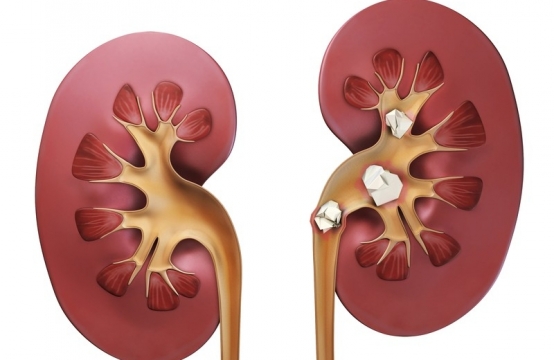
This will Help to Improve Early Diagnosis of Kidney Stone Disease
NUS leads clinical study to further investigate the development, early prediction and prevention of the disease
NUS leads clinical study to further investigate the development, early prediction and prevention of the disease
By: NUS News
An interdisciplinary research team led by the National University of Singapore (NUS) has recently discovered a unique panel of urine biomarkers that could accurately diagnose nephrolithiasis, also commonly known as kidney stone. These urine biomarkers may potentially be used to screen individuals who may be at a higher risk of developing the disease. Early intervention strategies could greatly reduce the economic and social burden of the increasingly prevalent and highly recurrent disease.
Nephrolithiasis or kidney stone, is a common ailment with a high five-year recurrence rate of 35 to 50 per cent, and can result in serious complications such as pain and chronic kidney disease. The current treatment for kidney stone employs extracorporeal shock wave lithotripsy, a non-invasive strategy that uses shock wave to fragment the kidney stones so that they can be passed out from the body. This method, while effective, has not been very successful in resolving the issue of recurrence. The increasing prevalence and high recurrence of the disease also place a substantial load on the healthcare system.
Associate Professor Eric Chan from the Department of Pharmacy at NUS Faculty of Science, in collaboration with the Department of Urology at National University Hospital (NUH), conducted a preliminary study from 2011 to 2013 to examine the underlying factors leading to the disease.
Assoc Prof Chan explained, “While diet and lifestyle choices is believed to be one of the key causes of kidney stone, the manner in which it develops remains unclear. A better understanding of the pathogenesis of the disease will facilitate the development of new, effective interventions that intercept and minimise the recurrence of the disease.”
Innovative urine test to screen for kidney stone
In the preliminary study, the research team examined urine samples of 50 kidney stone patients and 50 healthy individuals over a three-year period. During which, researchers identified a group of small molecular metabolites that were found at exceptionally low concentrations in the urine samples of kidney stone patients when compared to healthy individuals.
Using the metabolites identified, the research team developed a method of diagnosing the disease with a high level of accuracy. This method is capable of giving a definitive diagnosis solely based on analysis of the urine sample as compared to current methods, which require additional diagnostic imaging for accurate diagnosis. The levels of these metabolites excreted form a unique urinary metabolic signature for kidney stones which can potentially be used as a panel of biomarkers to screen healthy individuals who are more susceptible to developing the disease.
Researchers also noted that the differential excretion of these molecules could arise from differences in the diet, gut bacteria and liver metabolism, suggesting that kidney stone is potentially a multi-factorial disease.
Next step: Develop methods for early screening and intervention
Building on the findings of the preliminary study, the research team is now embarking on an in-depth clinical study to validate the group of small molecular metabolites with a secondary cohort of patients, and to further investigate the development of kidney stones. The study will recruit 75 kidney stone patients and 75 healthy individuals to examine their diet, genes, metabolism and gut bacteria profile, as well as identify urinary biomarkers that could translate into applications for early screening and intervention. The study, termed as Disease Interception of Calcium Oxalate Nephrolithiasis (DICON), is conducted in collaboration with researchers from the Agency for Science, Technology and Research Genome Institute of Singapore and Singapore Institute of Clinical Sciences. Janssen Research & Development, LLC provided research funding for the DICON study.
“The findings from the in-depth clinical study will lay the foundation for improved interventions for the disease. The small molecular metabolites, when validated, can also be used as disease biomarkers for developing new early screening methods,” added Professor Kesavan Esuvaranathan, Head of the Department of Urology at NUH.
The clinical study is conducted over two years at the National University Hospital Urology Clinic, and is expected to complete in July 2019.







Leave a Reply